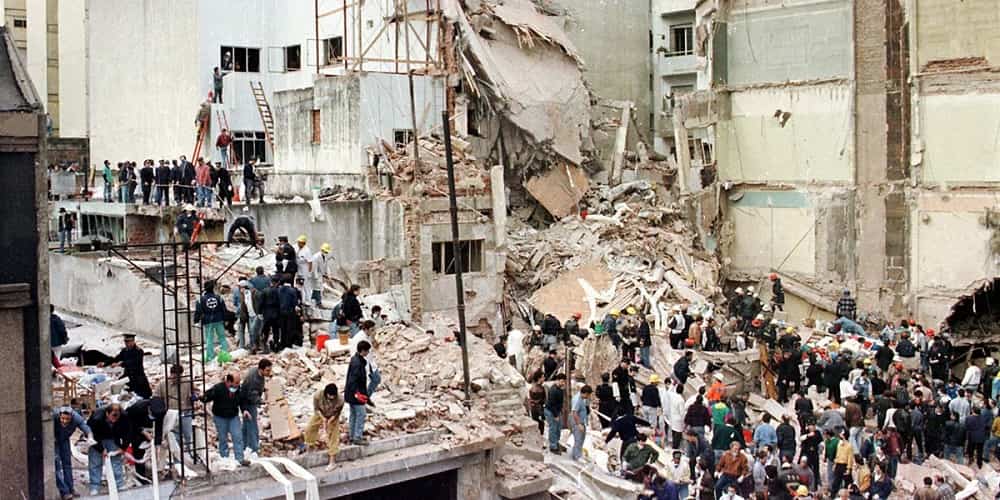
In a landmark ruling, Argentina’s highest criminal court has officially recognized Iran’s role in the 1994 bombing of the AMIA Jewish community center in Buenos Aires, labeling it a “crime against humanity” and declaring Iran a “terrorist state.”
This significant judicial move marks a pivotal advancement in the prolonged pursuit of justice for the devastating attack that claimed 85 lives and injured nearly 300. The AMIA bombing, which occurred on July 18, 1994, targeted the Argentine-Israeli Mutual Association building, representing one of the deadliest terrorist acts in Argentina’s history. Initial investigations quickly implicated Iranian involvement, identifying Lebanese Hezbollah and its faction, Ansar Allah, as executing the attack under Tehran’s direction.
The struggle to unravel the complete truth of the bombing has faced formidable challenges over the years. Iran’s regime has been accused of obstructing investigations and misleading authorities, with several high-ranking officials, including former Intelligence Minister Ali Fallahian and ex-commander of the Islamic Revolutionary Guard Corps (IRGC), Mohsen Rezae, implicated. Despite these hurdles, including the 2015 assassination of lead Argentine prosecutor Alberto Nisman—who was on the brink of exposing alleged governmental cover-ups—the quest for accountability has persisted.
#Iran News in Brief Miguel Ángel Toma, the former Minister of National Intelligence of #Argentina, highlighted that Alberto #Nisman, the prosecutor of the AMIA bombing case, was murdered by the regime in Iran. https://t.co/jdHd6nHeZO pic.twitter.com/EEaDOjOmnx
— NCRI-FAC (@iran_policy) April 22, 2023
Further complicating the judicial journey, a federal judge in 2017 issued arrest warrants for former Argentine president Cristina Fernandez de Kirchner and her foreign minister, Hector Timerman, charging them with “treason” for purportedly concealing Iranian officials’ roles in the bombing.
The ruling also underscores the critical efforts of the Iranian Resistance, notably the National Council of Resistance of Iran (NCRI), which has played a vital role in bringing to light Tehran’s involvement in the bombing. Their revelations have been crucial in maintaining international pressure for justice not only for AMIA’s victims but for all those affected by Iranian-sponsored terrorism globally.
This judicial declaration by Argentina’s court not only emphasizes the international dimension of combating state-sponsored terrorism but also sends a resolute message that such acts and their enablers will not be tolerated. It brings a sense of partial closure to the victims’ families and serves as a beacon of hope for justice against state-sponsored terrorism.
Yet, the battle is far from over. The international community’s ongoing support is essential in the fight against terrorism and in holding perpetrators accountable. The AMIA case remains a grim reminder of the extensive reach and destructive impact of state-sponsored terrorism, highlighting the crucial need for robust global cooperation to tackle and deter these threats effectively. The recent court ruling not only moves the needle towards justice for the AMIA victims but also reinvigorates the global call to combat and condemn terrorism in all its forms.

MEK Iran (follow us on Twitter and Facebook), Maryam Rajavi’s on her site, Twitter & Facebook, NCRI (Twitter & Facebook), and People’s Mojahedin Organization of Iran – MEK IRAN – YouTu
